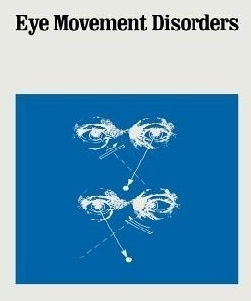- Home
- Editorial
- News
- Practice Guidelines
- Anesthesiology Guidelines
- Cancer Guidelines
- Cardiac Sciences Guidelines
- Critical Care Guidelines
- Dentistry Guidelines
- Dermatology Guidelines
- Diabetes and Endo Guidelines
- Diagnostics Guidelines
- ENT Guidelines
- Featured Practice Guidelines
- Gastroenterology Guidelines
- Geriatrics Guidelines
- Medicine Guidelines
- Nephrology Guidelines
- Neurosciences Guidelines
- Obs and Gynae Guidelines
- Ophthalmology Guidelines
- Orthopaedics Guidelines
- Paediatrics Guidelines
- Psychiatry Guidelines
- Pulmonology Guidelines
- Radiology Guidelines
- Surgery Guidelines
- Urology Guidelines
Childhood cancer survivors face eye movement disorder

LONDON: Commonly used chemotherapy toxins can impair the childhood cancer survivors' eye motor skills -- the eyes' ability to follow moving objects, new research has found.
"We observed that most of these patients were not able to move their eyes smoothly and steadily, but jerkily and fitfully," said one of the researchers Per-Anders Fransson from Lund University in Sweden.
"Eye movement like that makes it harder to focus on moving objects in traffic, for instance. It can also cause headaches and dizziness," Fransson noted.
The study included 23 childhood cancer survivors aged of 20 to 30, and compared them to 25 healthy people of the same age.
Only a few in the first group experienced no visual disorders, headaches and dizziness.
The degree of the problem appeared to be related to the degree of which the eye motor skills had been affected, which suggests damage to the central nervous system from the chemotherapy.
It has been previously known that cisplatin, methotrexate, and ifosfamide -- the types of chemo which the participants of the study had been treated with -- can penetrate the so-called blood-brain barrier, and thereby damage the nervous system.
What has not been known, however, is whether the eye motor skills could be affected, and the consequences of that.
The researchers found that almost 15 years after the patients underwent cancer treatment, majority of them are still suffering the effects of their treatment.
Age, at the time of treatment, appears to play an important role: those who were youngest at the time of treatment were the most affected, the study said.
"A child's brain has not completely developed, which makes it more susceptible to the influence of foreign substances," Thomas Wiebe from Skane University Hospital, Lund, Sweden.
Next Story
NO DATA FOUND

Disclaimer: This site is primarily intended for healthcare professionals. Any content/information on this website does not replace the advice of medical and/or health professionals and should not be construed as medical/diagnostic advice/endorsement or prescription. Use of this site is subject to our terms of use, privacy policy, advertisement policy. © 2020 Minerva Medical Treatment Pvt Ltd